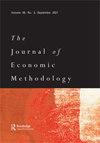万物的黎明:人类新的历史
IF 1.8
3区 经济学
Q2 ECONOMICS
引用次数: 4
摘要
关于大卫·格雷伯和大卫·温格罗的《万物的黎明》(以下简称《黎明》),我们还能说些什么呢?它的评论出现在许多大众媒体出版物上。尽管许多人倾向于夸张(例如,“如果你学到的关于人类历史的一切都是错的呢?”)《纽约时报》,2021年10月31日),这本书在学科内外引发的讨论数量令人印象深刻。这篇评论是由一位考古学家撰写的,也是为考古学家撰写的,它是由乔治亚大学考古学和历史专业的教师和研究生之间一学期的谈话所提供的信息。TDoE是一个全面的意识形态和智力项目,既招摇又有分量。这本书有近700页,包括注释和参考文献,它的目标不亚于从根本上改变我们对人类过去的看法。这本书是为面向公众写的。考古学家最喜欢这本书,因为他们可以避免被作者对考古数据草率处理时不可避免地出现的狗哨批评所困扰。《绝地绝地》将与其他面向公众的宏大叙事作品并举:贾里德·戴蒙德的《枪炮、病菌和钢铁》(1997);尤瓦尔·诺亚·赫拉利的《智人》(2011);詹姆斯·斯科特的《逆水行舟》(2017);以及格雷伯自己的债务(2011)。然而,它也会在寻求解构关于社会进化和不平等的目的论叙事的更激进的学术中找到同伴。已故的大卫·格雷伯是一位标志性的活动家、思想领袖和多产的知识分子,他在公共领域和学术领域之间游移自如。令人遗憾的是,格雷伯没能活着看到这本书受到的欢迎。大卫·温格罗是一位在非洲和中东考古方面有着深厚背景的考古学家,他的出版目录反映了他与该项目核心概念(即起源、文明)斗争的历史。温格罗的前言解释说,这本书是他和格雷伯10年对话的结果,并打算成为多次创造性合作的第一次。第一章介绍了本书的中心前提:把不平等和人类进化的阶梯式历史放在首位的人类历史叙述是危险的错误。它们使一种现代全球政治体系看起来很自然,在这种体系中,不平等被理解为社会进化的自然结果。我们哪里出错了?我们是怎么被困在那里的?第二章深入探讨了他们论文的核心要素:欧洲社会的“本土批判”。土著批判的支持者是kandionk,一位休伦-温达特政治家,他对宗教、法律、政治、个人自由和拒绝专断权力的观点构成了拉洪坦对话集的基础,反过来深刻影响了法国和其他地方的启蒙思想。虽然坎迪亚龙克确实是一个真实的人,但有一个问题是,《对话》是否代表了他的真实想法,还是他被塑造成一个典型的“高贵的野蛮人”;格雷伯和温格罗坚定地站在前者一边。对于加拿大的休伦-温达特民族来说,温达特哲学家和政治领袖以这种方式获得提升,代表了他们对自己的一个人的渴望(Louis Lesage, personal communication 2022)。第3-10章带领读者踏上一段穿越世界史前史的旅程,从冰河时代到农业、城市和前现代国家的起源。格雷伯和温格罗认为,不平等的根源在于旧石器时代,一旦这种权力和/或财富的不平衡表现出来,人类就会发展出灵活而自觉的政治策略来颠覆它们。在探索在采集者,农民,城市中的人类集体的层次到层次的动态本文章由计算机程序翻译,如有差异,请以英文原文为准。
The dawn of everything: a new history of humanity
What is left to be said about David Graeber and David Wengrow’s book, The Dawn of Everything (hereafter, TDoE)? Reviews of it have appeared in a great many mass-media publications. Although many trend to the hyperbolic (e.g., “What If Everything You Learned about Human History Is Wrong?” New York Times, October 31, 2021), the amount of conversation the book has generated within and beyond the discipline is impressive. This review is written by an archaeologist and for archaeologists, and it is informed by a semester’s worth of conversations among faculty members and graduate students in archaeology and history at the University of Georgia. TDoE is a sweeping ideological and intellectual project that has both swagger and heft. With nearly 700 pages including notes and references, its goal is nothing less than a fundamental transformation of how we think about the human past. The book was written to be public facing. It will be best enjoyed by archaeologists who can avoid getting caught up in the dog-whistle critiques that inevitably emerge when the authors play fast and loose with archaeological data. TDoE will sit comfortably alongside other public-facing grand narratives: Jared Diamond’s Guns, Germs, and Steel (1997); Yuval Noah Harari’s Sapiens (2011); James Scott’s Against the Grain (2017); and Graeber’s own Debt (2011). However, it will also find company among more radical scholarship that seeks to deconstruct teleological narratives about social evolution and inequality. The late David Graeber was an iconic activist, thought leader, and prolific intellectual, who moved seamlessly between public and academic realms. It is sad that Graeber did not live to see this book’s reception. David Wengrow is an archaeologist with a strong background in African and Middle Eastern archaeology, and a publication catalog that reflects a history of grappling with concepts central to the project (i.e., origins, civilization). Wengrow’s foreword explains that this book was the outcome of 10 years of dialogue between him and Graeber and was intended to be the first of multiple creative collaborations. The first chapter introduces the central premise: narratives about human history that forefront inequality and a step-wise history of human evolution are dangerously wrong. They have made seem natural a modern global political system in which inequality is understood as the natural outcome of social evolution. Where did we go wrong? And how did we get stuck there? The second chapter takes a deep dive into a core element of their thesis: the “Indigenous critique” of European society. The proponent of the Indigenous critique is Kandiaronk, a Huron-Wendat statesman whose purported views on religion, law, politics, personal freedom, and the refusal of arbitrary power formed the basis of Lahontan’s Dialogues and in turn profoundly influenced Enlightenment thinking in France and beyond. Although Kandiaronk was certainly a real person, there is a question about whether the Dialogues represent his actual thoughts or whether he was crafted as an archetypical “noble savage”; Graeber and Wengrow come down firmly on the side of the former. For the Huron-Wendat Nation of Canada, the elevation of a Wendat philosopher and political leader in this way represents a much-desired recognition of one of their own (Louis Lesage, personal communication 2022). Chapters 3–10 take the reader on a head-snapping journey through world prehistory, from the Ice Age through the origins of farming, cities, and premodern states. Graeber and Wengrow argue that the origins of inequality lie in the Paleolithic, and that as soon as such imbalances in power and/or wealth manifested themselves, humans developed flexible and selfconscious political strategies for subverting them. In exploring the heterarchical-to-hierarchical dynamics of human collectives among foragers, farmers, city
求助全文
通过发布文献求助,成功后即可免费获取论文全文。
去求助
来源期刊

Journal of Economic Methodology
ECONOMICS-
CiteScore
3.20
自引率
8.30%
发文量
23
期刊介绍:
The Journal of Economic Methodology is a valuable forum which publishes the most current and exciting work in the broad field of economic methodology. The Journal of Economic Methodology addresses issues such as: ■Methodological analysis of the theory and practice of contemporary economics ■Analysis of the methodological implications of new developments in economic theory and practice ■The methodological writings and practice of earlier economic theorists (mainstream or heterodox) ■Research in the philosophical foundations of economics ■Studies in the rhetoric, sociology, or economics of economics
 求助内容:
求助内容: 应助结果提醒方式:
应助结果提醒方式:


